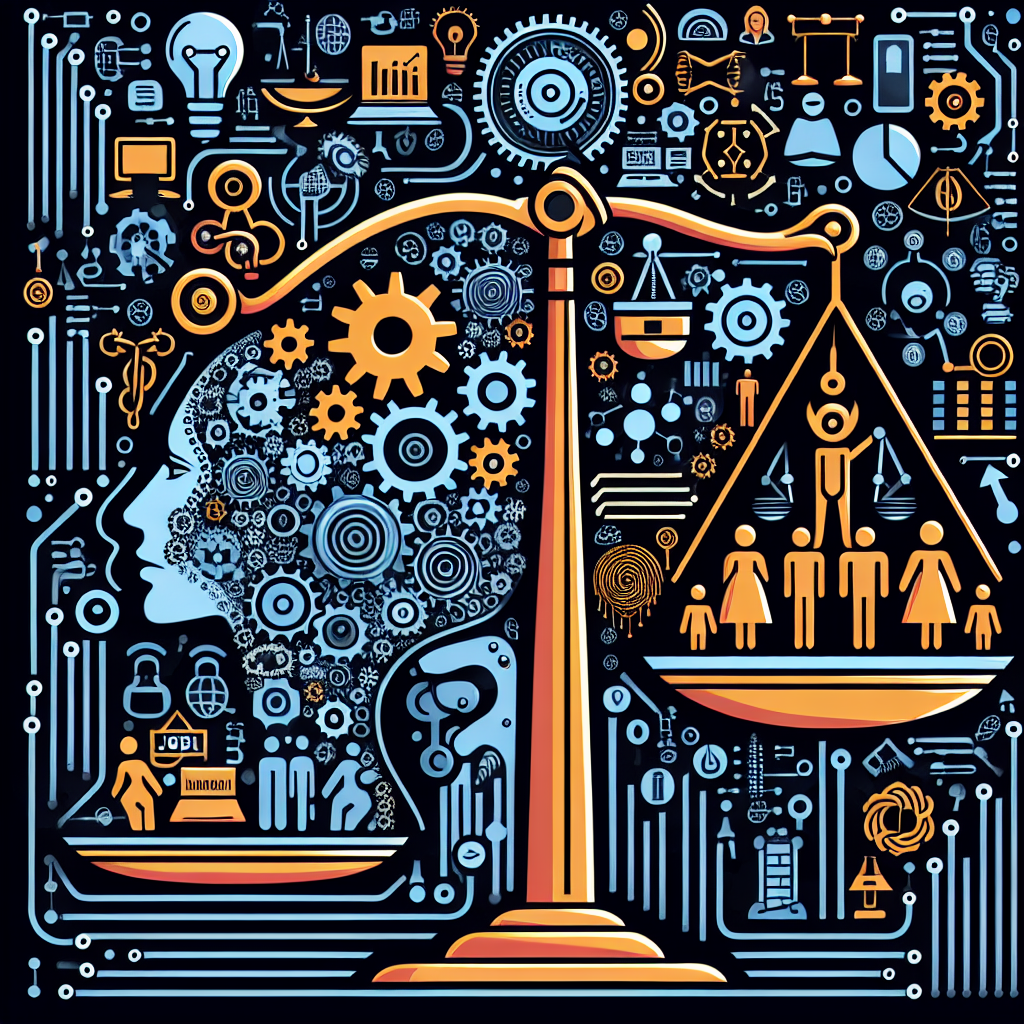The Impact of AI Automation on the Job Market
Artificial Intelligence (AI) has become an increasingly prevalent technology in our society, with applications ranging from virtual assistants like Siri and Alexa to self-driving cars and automated customer service systems. As AI technology continues to advance, it is inevitable that it will have a significant impact on the job market. While AI automation has the potential to increase efficiency and productivity in many industries, it also raises concerns about the displacement of workers and the future of employment.
One of the main ways in which AI automation is affecting the job market is through the automation of routine and repetitive tasks. Many jobs that involve manual labor or data entry can now be automated using AI technology, leading to a decrease in the demand for human workers in these roles. For example, in the manufacturing industry, robots and AI-powered machines are increasingly being used to perform tasks that were previously done by human workers. This can lead to job loss for workers in these industries, as companies seek to cut costs and increase efficiency through automation.
Another way in which AI automation is impacting the job market is through the creation of new job opportunities in the tech industry. As AI technology continues to advance, there is a growing demand for workers with skills in artificial intelligence, machine learning, and data analysis. Companies are increasingly looking to hire data scientists, AI engineers, and other tech professionals to help develop and implement AI systems in their businesses. This has led to a surge in job opportunities in the tech industry, as companies seek to stay competitive in a rapidly changing technological landscape.
However, while AI automation is creating new job opportunities in the tech industry, it is also leading to job displacement in other sectors. Many jobs that involve routine tasks, such as customer service representatives and administrative assistants, are at risk of being automated in the near future. This raises concerns about the future of employment for workers in these industries, as AI technology continues to advance and become more sophisticated.
One of the key challenges of AI automation in the job market is the need for workers to adapt and acquire new skills to remain competitive in the workforce. As more jobs become automated, workers will need to develop skills in areas that are less susceptible to automation, such as critical thinking, problem-solving, and creativity. This can be a daunting task for many workers, especially those who have been in the same job for many years and may not have the necessary skills to transition to a new role.
Despite these challenges, there are also opportunities for workers to benefit from AI automation in the job market. AI technology has the potential to increase productivity and efficiency in many industries, leading to higher wages and better working conditions for workers. For example, in the healthcare industry, AI-powered systems can help doctors diagnose diseases more accurately and quickly, leading to better patient outcomes and improved job satisfaction for healthcare professionals.
Overall, the impact of AI automation on the job market is complex and multifaceted. While AI technology has the potential to create new job opportunities and increase productivity in many industries, it also raises concerns about the displacement of workers and the future of employment. As AI technology continues to advance, it is essential for policymakers, businesses, and workers to work together to ensure that the benefits of AI automation are shared equitably and that workers are able to adapt and thrive in a rapidly changing job market.
FAQs
Q: Will AI automation lead to widespread job loss?
A: While AI automation has the potential to automate many routine tasks and lead to job displacement in some industries, it is also creating new job opportunities in the tech industry. Workers will need to adapt and acquire new skills to remain competitive in the workforce.
Q: What can workers do to prepare for AI automation in the job market?
A: Workers can prepare for AI automation by developing skills in areas that are less susceptible to automation, such as critical thinking, problem-solving, and creativity. It is also important for workers to stay informed about new developments in AI technology and how it is impacting their industry.
Q: How can policymakers help address the impact of AI automation on the job market?
A: Policymakers can help address the impact of AI automation on the job market by investing in education and training programs for workers, promoting job retraining and upskilling initiatives, and implementing policies that support workers who are displaced by automation.
Q: What are the potential benefits of AI automation in the job market?
A: AI automation has the potential to increase productivity and efficiency in many industries, leading to higher wages and better working conditions for workers. It can also help businesses stay competitive in a rapidly changing technological landscape.

